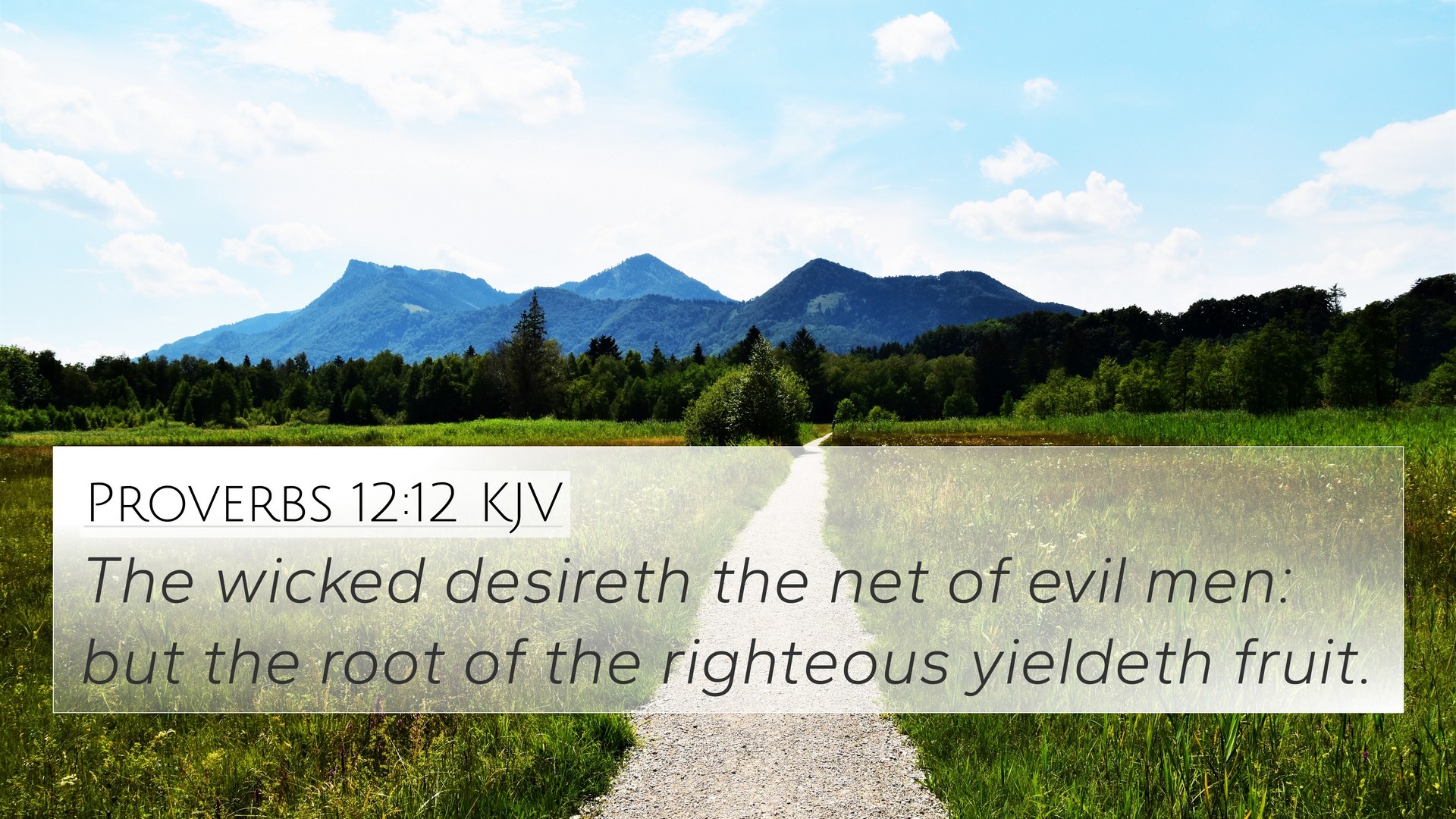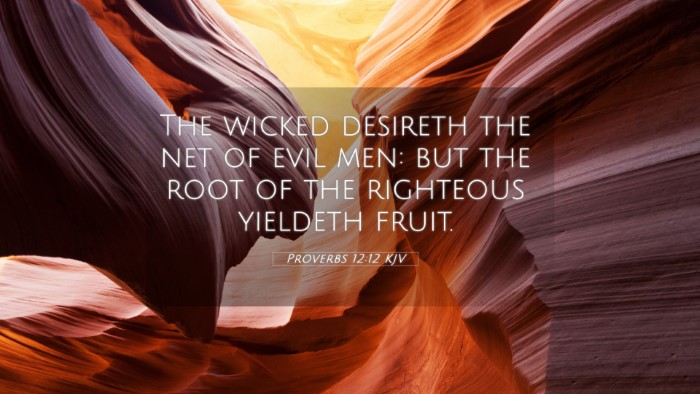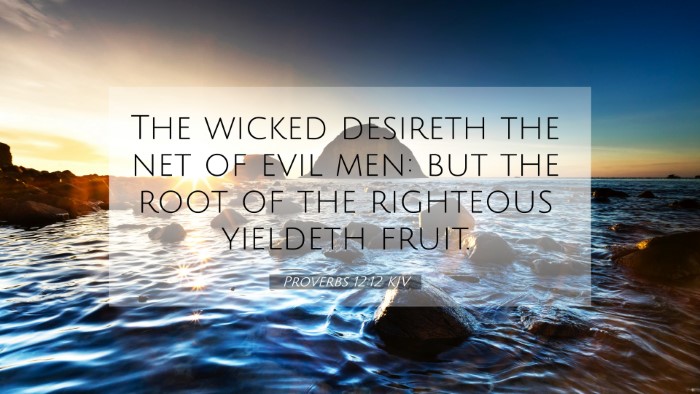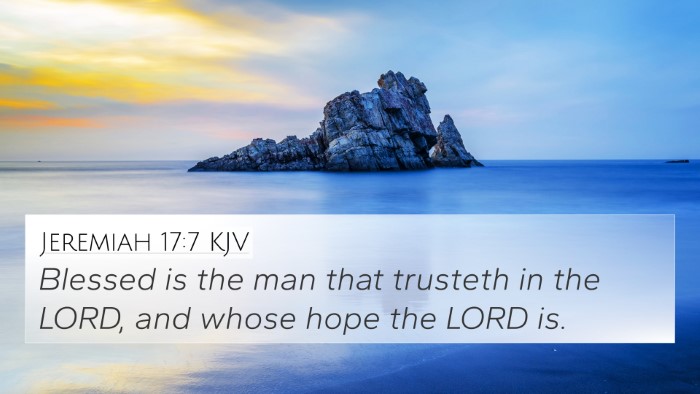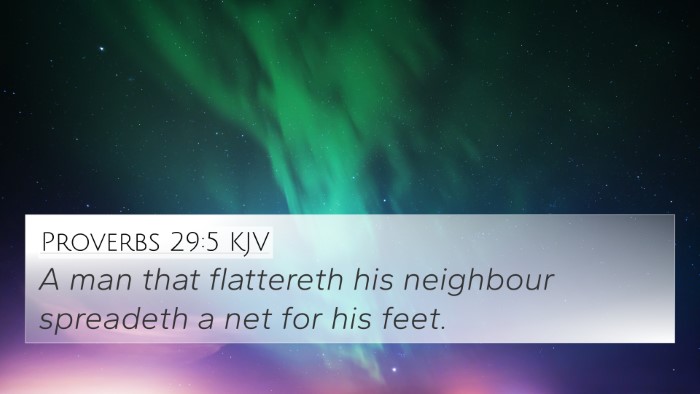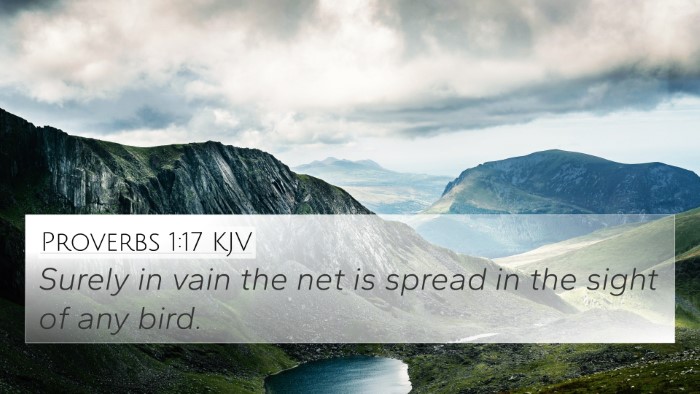This section features a detailed cross-reference designed to enrich your understanding of the Scriptures.
Below, you will find carefully selected verses that echo the themes and teachings related to Proverbs 12:12 KJV. Click on any image to explore detailed analyses of related Bible verses and uncover deeper theological insights.
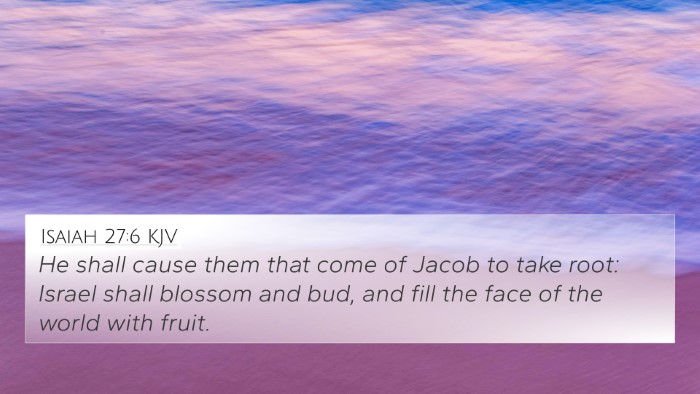 Isaiah 27:6 (KJV) »
Isaiah 27:6 (KJV) »
He shall cause them that come of Jacob to take root: Israel shall blossom and bud, and fill the face of the world with fruit.
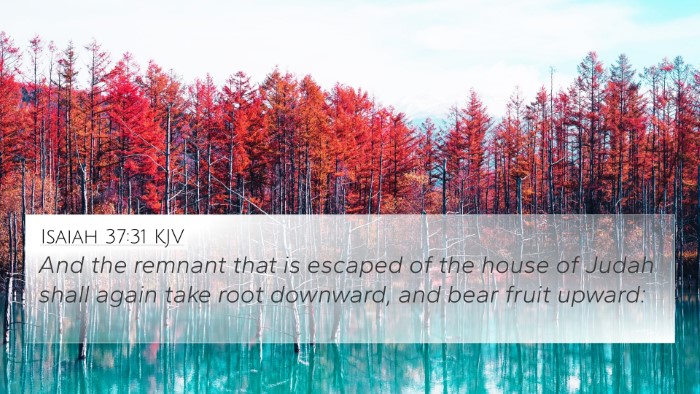 Isaiah 37:31 (KJV) »
Isaiah 37:31 (KJV) »
And the remnant that is escaped of the house of Judah shall again take root downward, and bear fruit upward:
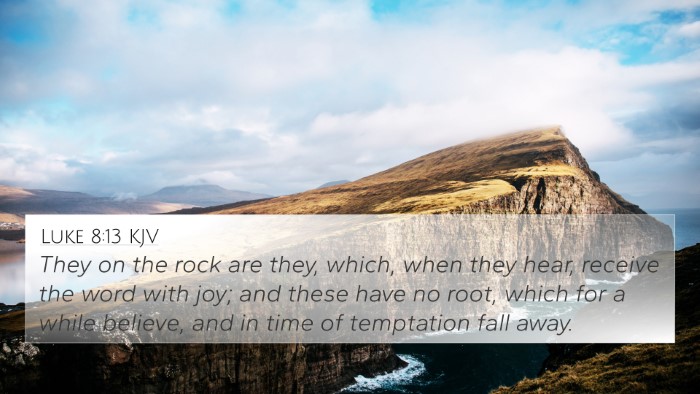 Luke 8:13 (KJV) »
Luke 8:13 (KJV) »
They on the rock are they, which, when they hear, receive the word with joy; and these have no root, which for a while believe, and in time of temptation fall away.
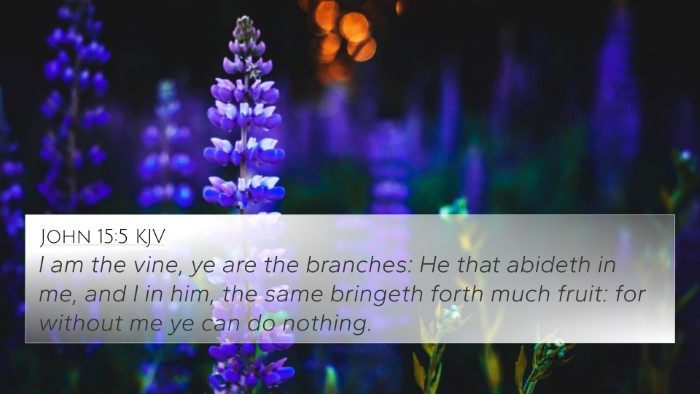 John 15:5 (KJV) »
John 15:5 (KJV) »
I am the vine, ye are the branches: He that abideth in me, and I in him, the same bringeth forth much fruit: for without me ye can do nothing.
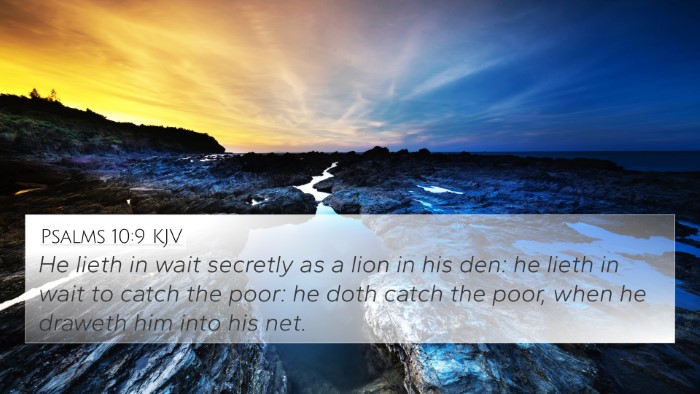 Psalms 10:9 (KJV) »
Psalms 10:9 (KJV) »
He lieth in wait secretly as a lion in his den: he lieth in wait to catch the poor: he doth catch the poor, when he draweth him into his net.
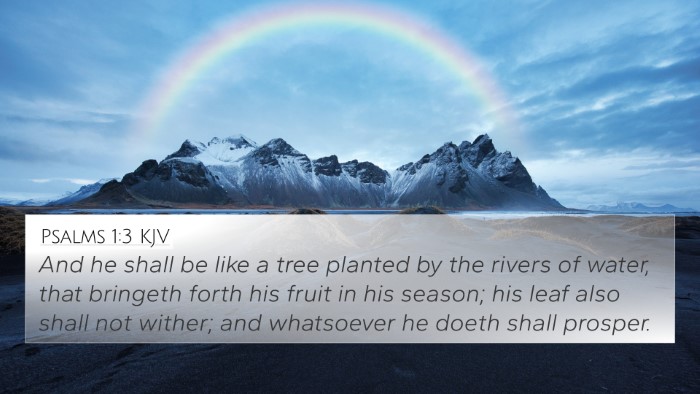 Psalms 1:3 (KJV) »
Psalms 1:3 (KJV) »
And he shall be like a tree planted by the rivers of water, that bringeth forth his fruit in his season; his leaf also shall not wither; and whatsoever he doeth shall prosper.
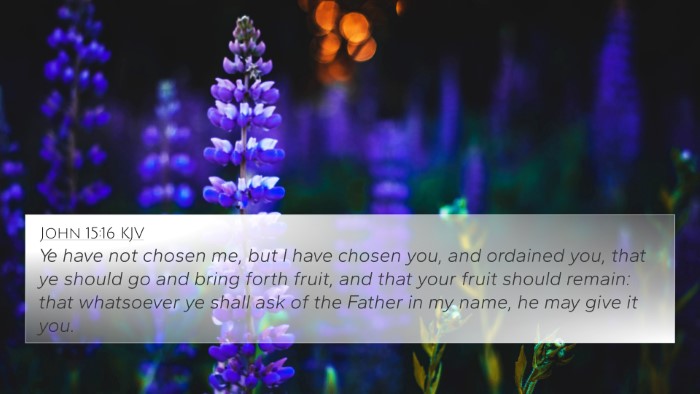 John 15:16 (KJV) »
John 15:16 (KJV) »
Ye have not chosen me, but I have chosen you, and ordained you, that ye should go and bring forth fruit, and that your fruit should remain: that whatsoever ye shall ask of the Father in my name, he may give it you.
 Habakkuk 1:15 (KJV) »
Habakkuk 1:15 (KJV) »
They take up all of them with the angle, they catch them in their net, and gather them in their drag: therefore they rejoice and are glad.
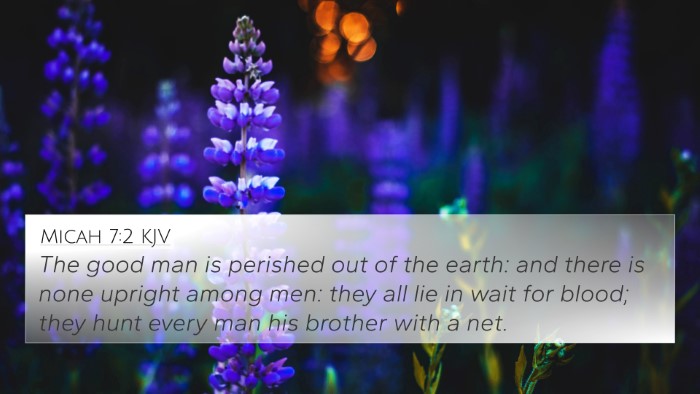 Micah 7:2 (KJV) »
Micah 7:2 (KJV) »
The good man is perished out of the earth: and there is none upright among men: they all lie in wait for blood; they hunt every man his brother with a net.
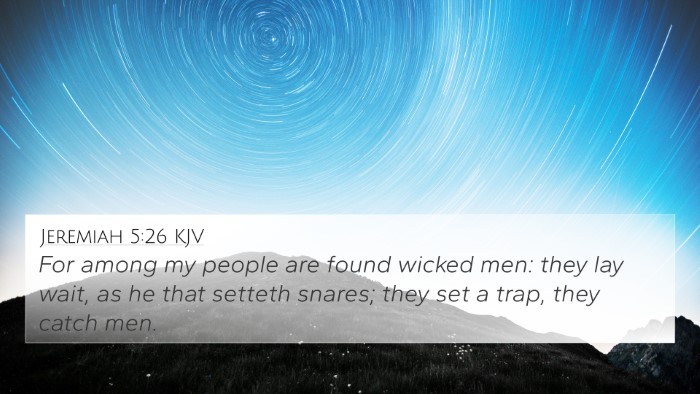 Jeremiah 5:26 (KJV) »
Jeremiah 5:26 (KJV) »
For among my people are found wicked men: they lay wait, as he that setteth snares; they set a trap, they catch men.
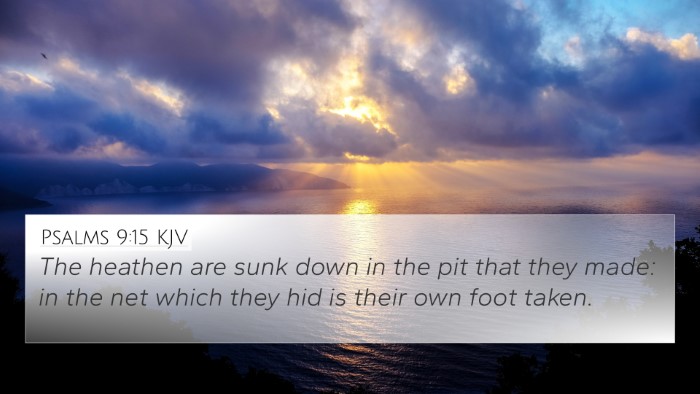 Psalms 9:15 (KJV) »
Psalms 9:15 (KJV) »
The heathen are sunk down in the pit that they made: in the net which they hid is their own foot taken.
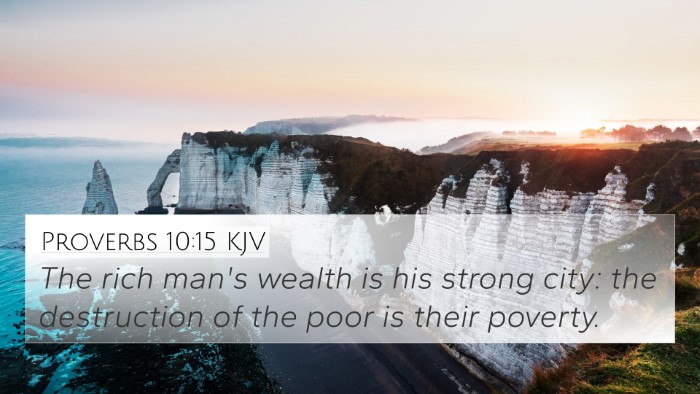 Proverbs 10:15 (KJV) »
Proverbs 10:15 (KJV) »
The rich man's wealth is his strong city: the destruction of the poor is their poverty.
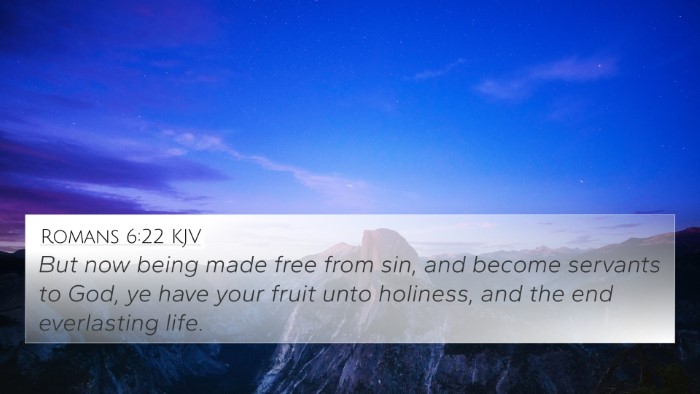 Romans 6:22 (KJV) »
Romans 6:22 (KJV) »
But now being made free from sin, and become servants to God, ye have your fruit unto holiness, and the end everlasting life.
